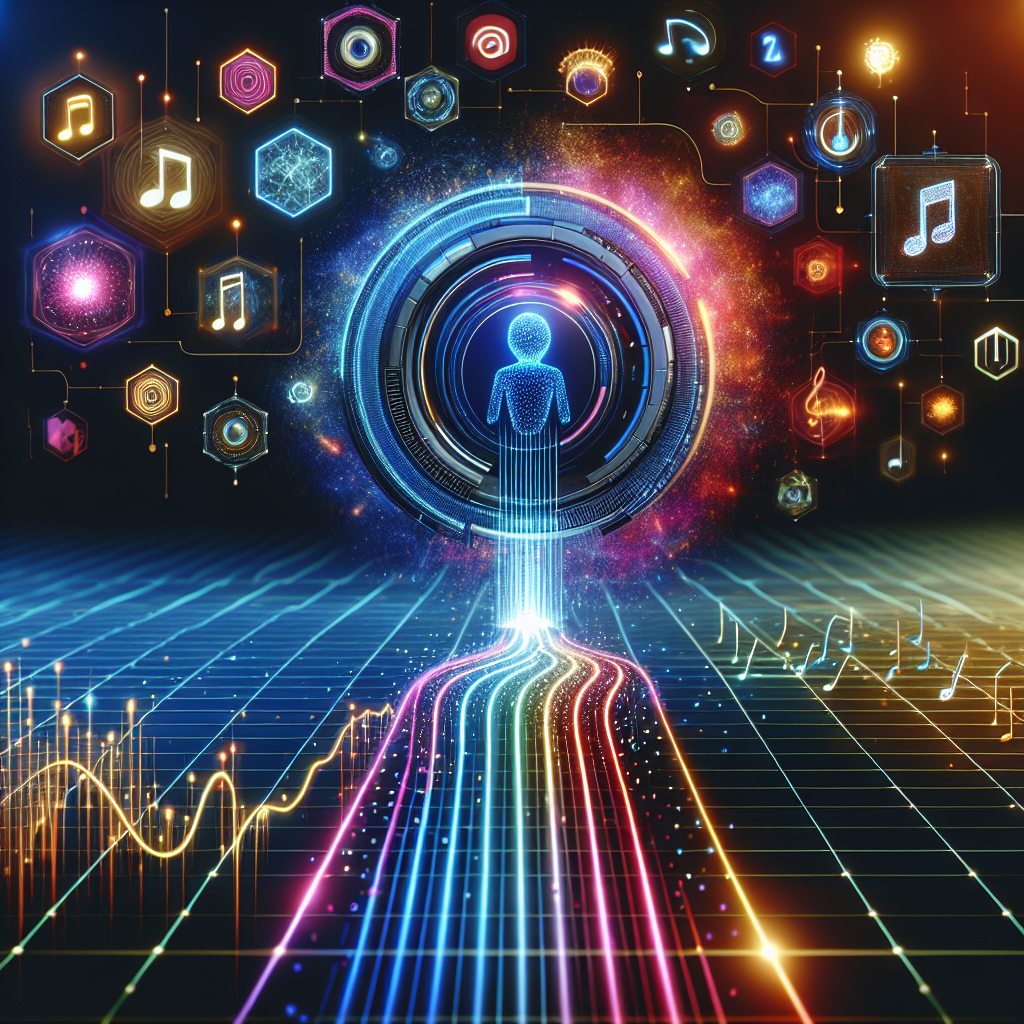In recent years, artificial intelligence (AI) has been revolutionizing the way we discover and consume music. With the rise of streaming platforms like Spotify, Apple Music, and Pandora, music lovers now have access to millions of songs at their fingertips. AI technology is being used to analyze user preferences, create personalized playlists, and recommend new music based on listening habits. This has opened up a whole new world of possibilities for discovering music and has changed the way we interact with artists and their music.
One of the key ways in which AI is shaping the future of music discovery platforms is through its ability to analyze vast amounts of data to understand user preferences and behavior. By tracking what songs users listen to, how often they listen to them, and what other songs they like, AI algorithms can create highly personalized recommendations that cater to individual tastes. This level of personalization has never been possible before and has made it easier for users to discover new music that they may not have come across otherwise.
Another way in which AI is changing the music discovery landscape is through its ability to identify trends and predict what songs will be popular in the future. By analyzing data from social media, streaming platforms, and other sources, AI algorithms can identify patterns and correlations that can help predict which songs are likely to become hits. This can be incredibly valuable for artists and record labels, as it can help them target their marketing efforts more effectively and increase the chances of their music being heard by a wider audience.
AI is also being used to create new tools and features that enhance the music discovery experience. For example, some platforms are using AI to analyze the lyrics of songs and provide users with insights into the meaning and themes of the music. Others are using AI to generate personalized playlists for users based on their mood or activity, such as workout playlists or relaxation playlists. These features can help users discover new music in a more engaging and interactive way, making the overall music discovery experience more enjoyable.
Despite the many benefits of AI in music discovery, there are also some concerns and challenges that come with the use of this technology. One of the main concerns is the potential for AI algorithms to reinforce existing biases and stereotypes in the music industry. For example, if AI algorithms are trained on a dataset that is predominantly male or white, they may be more likely to recommend music from male or white artists, which can perpetuate inequalities in the industry. To address this issue, it is important for developers to ensure that their algorithms are trained on diverse and representative datasets to avoid bias and promote inclusivity in music discovery.
Another challenge of AI in music discovery is the potential for algorithms to prioritize popular or mainstream music over more niche or independent artists. While AI algorithms are designed to recommend music that users are likely to enjoy based on their listening habits, this can sometimes lead to a lack of diversity in the recommendations that are made. To address this issue, music discovery platforms can work to incorporate more diverse and independent artists into their algorithms and promote a wider range of music to users.
Overall, the future of music discovery platforms is bright with the integration of AI technology. As algorithms continue to improve and become more sophisticated, users can expect a more personalized and engaging music discovery experience that helps them discover new music and connect with artists in a meaningful way. With the right balance of innovation and ethical considerations, AI has the potential to revolutionize the music industry and create new opportunities for artists and music lovers alike.
FAQs:
1. How does AI technology analyze user preferences to recommend music?
AI technology analyzes user preferences by tracking what songs users listen to, how often they listen to them, and what other songs they like. This data is then used to create personalized recommendations that cater to individual tastes.
2. How does AI predict what songs will be popular in the future?
AI predicts what songs will be popular in the future by analyzing data from social media, streaming platforms, and other sources to identify patterns and correlations that can help predict which songs are likely to become hits.
3. How can AI algorithms avoid bias in music recommendations?
To avoid bias in music recommendations, AI algorithms should be trained on diverse and representative datasets to ensure that recommendations are inclusive and promote a wide range of artists and music.
4. How can music discovery platforms incorporate more diverse and independent artists into their algorithms?
Music discovery platforms can incorporate more diverse and independent artists into their algorithms by actively seeking out and promoting music from a wide range of artists and genres and ensuring that their algorithms are not biased towards popular or mainstream music.

